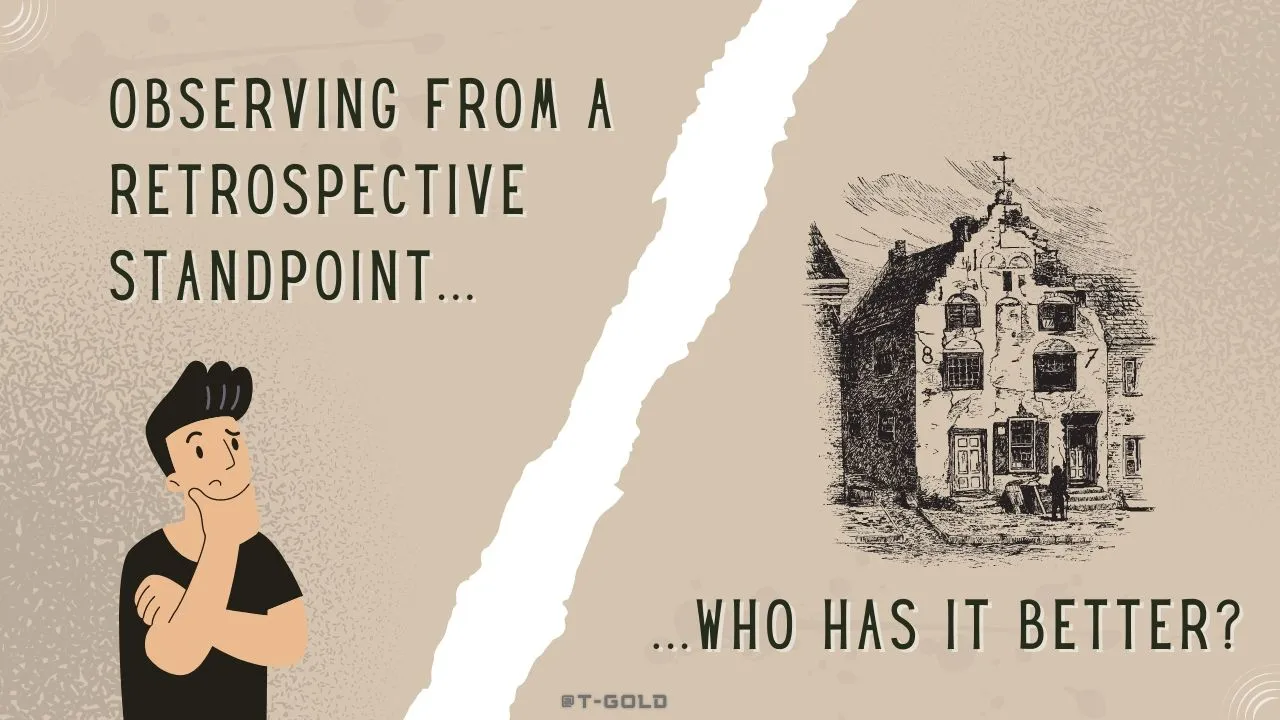To start with, it’s pivotal that we understand what "happiness" really means. Happiness is a state of mind that comes from contentment. We must not confuse "pleasures" with "happiness," as they are not the same thing. Physical comforts cannot and will not provide happiness.

𝖣𝖾𝗌𝗂𝗀𝗇𝖾𝖽 by me 𝗎𝗌𝗂𝗇𝗀 𝖼𝖺𝗇𝗏𝖺
We today have everything at our command; science is at our beck and call. We have all the comforts of life that our forefathers could never even dream of. But the point is, are we really happy? There are worries, there are anxieties, and there is no sense of satisfaction or contentment.
There are various aspects in which I believe that our forefathers were happier than we are; below are a few of them:
CONTENTMENT
Men in the past worked hard, slept soundly, lived together, and lived for one another. They were satisfied with what they had obtained. There is a proverb in the region of the world where I currently live that reads, "Money no dey reach wealthy man," which roughly translates to, "Even the richest man of today is not content."
Money and resources cannot buy happiness; the mind and spirit are where it resides. Our forefathers enjoyed that ‘Happiness’ which we today fail to find. This trait is common amongst we the youths, we feel money is what brings us happiness therefore we find ourselves stacked in the so called "Rat Race".
Today's city life is characterized by a lot of stress, noise, and congestion. Stress and tension are a part of everyday life. There is pleasure but no contentment. We are not at ease.
On the other hand, our forefathers led a simple existence. They had fewer desires, which they met via hard effort. They enjoyed the basic pleasures of life and were robust, healthy, and strong. They led happy, peaceful lives.
Without a doubt, we are happier than our ancestors if we believe that happiness is a result of material comforts. We are happier if happiness is defined as enjoying ourselves. However, if happiness is defined as contentment, as I previously stated, then our forefathers should be regarded as being much happier than we are.
FAMILY
In terms of scientific and technological development, we can unquestionably say that we have well outpaced our ancestors in the present. Have we ever stopped to consider what we have given up in exchange for all of these technologies that make life incredibly comfortable and supply us with a sea of knowledge?
All social gatherings and family outings, which were significant to our ancestors, had to be forsaken. so much so that we are slowly killing the ties to the family.
Every family member is occupied with his or her own interests and pursuits of knowledge. Nobody in the family knows what the other people are doing because they are all so busy. Are they a family? What can be anticipated of life in a society composed of such families?
All of this is true in my extended family right now, so I can speak from personal experience. My beloved cousins, who we used to play together when we were kids, are now forming "big boys and girls" for one another. While I frequently find it to be perplexing, what can I do?
SOCIETY
Also in terms of society, I'd argue that our forefathers enjoyed the pleasure of getting together with friends and family to commemorate joyous events in both the family and society. In the modern day, society has shifted from being a place where we could support one another to being a place where we could display our best qualities to everyone.
This generation is developing known and unknown diseases as a result of the fast-paced lifestyle they lead. Their constant concern over money keeps them alert and on edge. Is this the life we cherish, emptied of all care, love, and everything that was?
"Tension" is the new buzzword I would choose to describe today's lifestyle. My response is, "Tension of receiving what?" This conflict, I'd say, is more about obtaining what others have than it is about obtaining what we want.
No one is content with what they have these days.
Everyone seems to want exactly what they lack and everything that the others have. I would argue that there is no cure for this attitude, and it is this attitude alone that causes us to be unhappy in the midst of all the comforts and wealth.
So, in this way too, our forefathers had it better than we do. They strived for improvement, yet it appears that they were content with whatever they had, and this was the secret to their pleasure.
HONESTY & DIGNITY
Even though it is inanimate, our forefathers benefited much from this aspect. Human interactions must have been simpler, clearer, and happier back when these characteristics were prevalent in the majority of people. These days, spotting these traits in those around us is like attempting to grasp the wind in our hands.
There will always be dishonesty and a lack of integrity for human decency wherever we go and in whatever we engage. Where can people find comfort and peace of mind in the face of all these negative qualities?
In Conclusion…
Are we truly more happy than our ancestors? It's doubtful, in my opinion. When comparing our lifestyles to those of our forefathers, I firmly believe that they were far superior to ours. They were happy and content, which is what I believe defines life. If we miss this, our lives are meaningless no matter what else we have.
In this technological era, life is nothing but clamor and commotion, hurry and racket, roar and rush. Our blood is running a fever. We are restless and dissatisfied, constantly looking for something new. The old-fashioned peaceful and solid pleasures are no longer available to us. the feeling of security has vanished. In our hearts, there is anxiety.
Thanks for reading my blog, see you in the next.